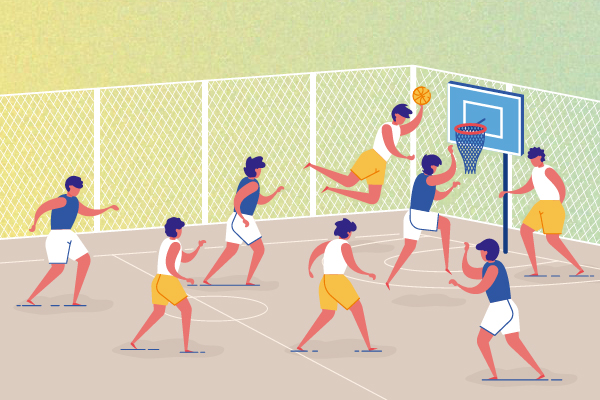Sport brings people together to exercise, grow, and have fun. However, beneath this positive image, a darker reality can sometimes emerge: harassment and intimidation. This complex and sensitive issue is receiving growing attention in the Netherlands. In this blog, we explore how harassment in sports can arise and what steps can be taken to address it.
What is harassment
Harassment covers a wide range of behaviours that cross a person’s physical, emotional or social boundaries. Examples include physical harassment, sexual harassment, bullying, discrimination and abuse of power. Read more about the definition and different forms of harassment.
In the world of sports, this behaviour can come from coaches, fellow players, medical support staff or even spectators. The impact of harassment is huge. People who experience it often experience feelings of fear, shame and isolation, which can damage their performance and passion for sports. It may even drive them to quit sports altogether.
How does harassment occur in sport?
In sport, several factors contribute to the emergence of harassment:
- Power dynamics: coaches often hold significant influence over athletes’ performance and career opportunities. This position of power can be abused.
- Competitive culture: the intense drive to win can blur boundaries, allowing behaviour that would be unacceptable in other settings to be tolerated or ignored.
- Hesitance to report: many people who experience harassment feel unsafe reporting it, fearing negative consequences or believing their complaint will not be taken seriously.
A well-known example in the Netherlands is the 2021 report on harassment in gymnastics, which revealed that young athletes endured years of physical and mental abuse by their trainers. The report sparked widespread public outrage and a renewed focus on addressing harassment and intimidation in sports. Since then, reports and accounts of structural misconduct have surfaced in several sports federations, including dance, triathlon, and basketball.
How can we prevent harassment in sports?
Create a safe environment:
- Open communication: make sure everyone feels safe to state their boundaries and report problems. Discuss safety regularly so that it does not remain taboo.
- Raise awareness: organise training sessions and campaigns on harassment and how to prevent it.
- Role models: coaches and experienced athletes, but also parents and spectators should set a good example. Their behaviour has a great influence on others.
Establish clear rules
- Code of conduct: draw up a Code of conduct about acceptable and unwanted behaviour and protocols on reporting and sanctions. Have everyone sign it and regularly bring the Code of conduct to the attention of others.
- Reporting:establish an accessible reporting system, such as appointing a confidential counselor. Clearly outline the process for handling reports.
- Sanctions: react quickly and clearly to violations. This shows that harassment will not be tolerated.
Invest in prevention
- Training: offer training for coaches, athletes and volunteers on how to recognise and address harassment.
- Monitoring: regularly evaluate safety and wellbeing in your club or association. Ask for feedback from athletes and others involved, such as volunteers.
- Collaboration: work with organisations that specialise in preventing harassment, such as Fairspace. Read more about how Fairspace can help create a safe sports environment.
Support people who experience harassment
- Listening: take reports seriously and listen without judgement.
- Counselling: offer counselling, such as psychological help or legal support. If your club can’t offer this, ensure you refer your athletes to external care and support.
- Recovery: focus on healing for both those who have experienced harassment and the club, ensuring that everyone feels safe again.
Conclusion
Harassment in sports is a serious issue that demands attention and action. By raising awareness, establishing clear rules, and investing in prevention, sports organisations can create a safe environment where everyone feels respected. Fairspace is ready to provide support in this effort.
